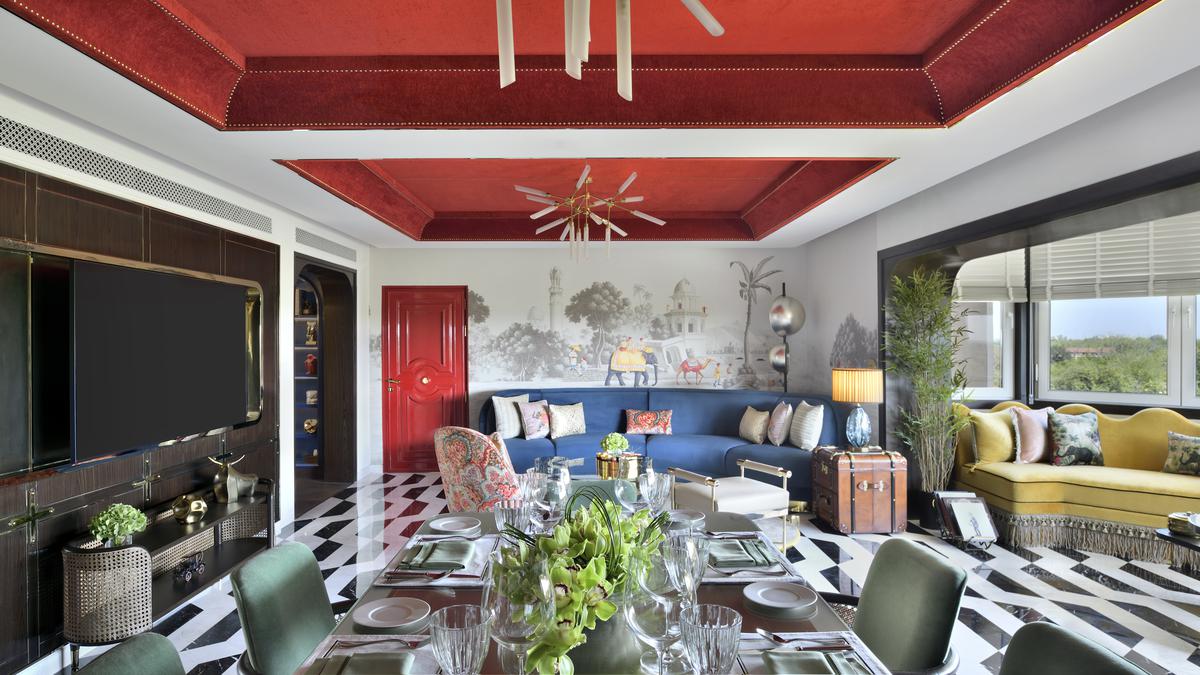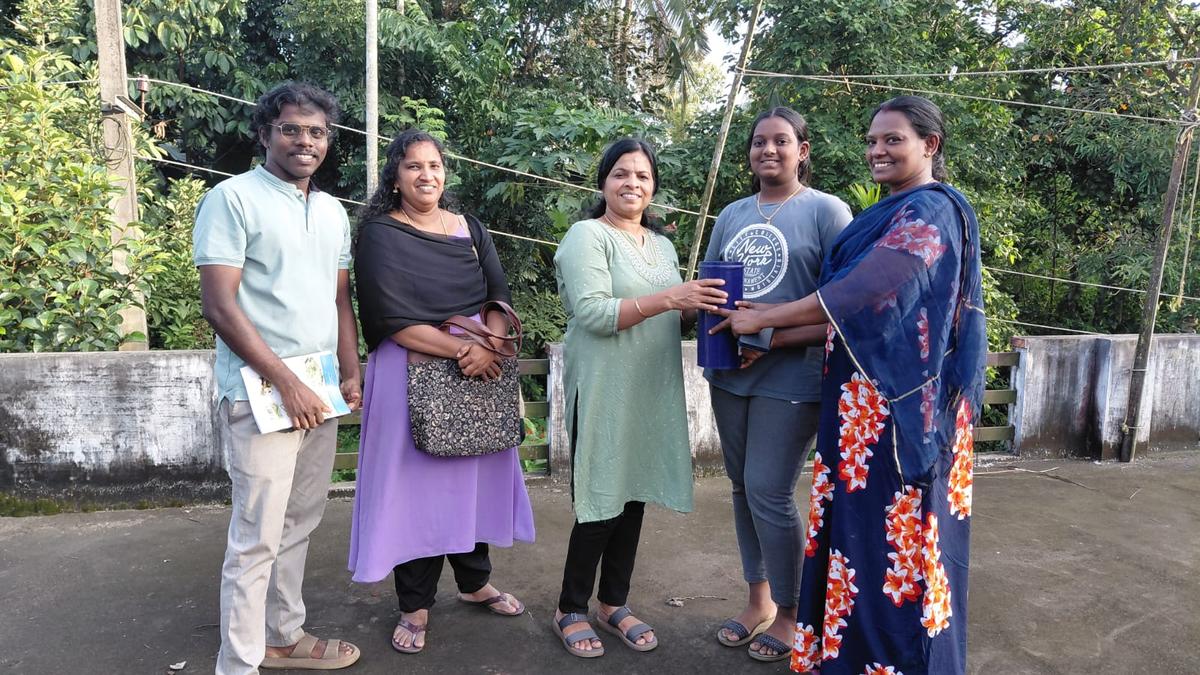Israel-based orchestra Castle in Time
Israel-based orchestra Castle in Time, which experiments with groove, jazz, textures, avant-garde, classical contemporary, electro-acoustic, minimalism, and live composition sound languages, will return to India after two years. On the invitation of the Israel embassy and music production company Mixtape, the orchestra will be joined by Indian percussionist-composer Trilok Gurtu for its Harmonies in Time Tour.
Its association with Trilok dates to 2017 and converges on the merit of his dexterity to improvise. “Actually, one of the reasons we began introducing live composition to the orchestra’s repertoire was Trilok. When we started our collaboration in 2017, it was clear to me that apart from the written notation scores, we must be able to interact through improvisation with Trilok,” says the orchestra’s co-founder Matan Daskal.
With clinical precision, Matan dissects the anatomy of improvisation, describing it as an elaborate and fun experience when done in a small group. “But imagine what happens when you place 25 musicians and ask them to improvise. It has the potential to end up being chaotic, messy, and without a clear direction. That led us to develop our live composition communication skills.”
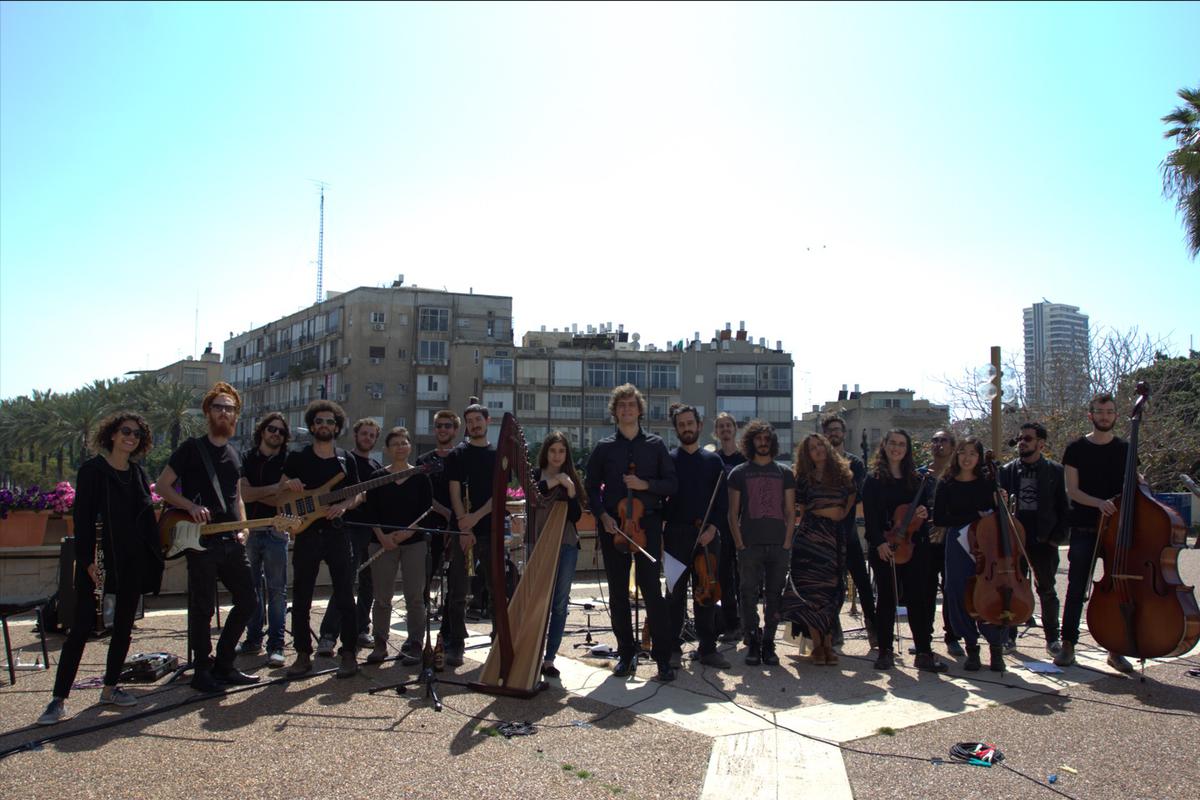
Members of the orchestra Castle in Time
On their previous tour, in 2020, the orchestra performed in Mumbai, Pune and Chennai as part of the Global Isai Festival and created live compositions on stage using conduction and sound-painting. They also staged a gig in Bangalore with the Bangalore school orchestra as part of the East-West Music And Dance Encounter. “The visit left a strong impact on us and we craved to return. When we were in India in 2020, I wrote Trilok an email from the hotel, saying ‘it could be amazing if one day we perform here together’, and I can’t believe this day is coming soon,” says Matan.
Castle in Time Orchestra was formed in 2013 as an independent, contemporary and large ensemble with acoustic and electronic instruments. Matan informs: “The orchestra acts from a desire to expand borders and research fields of sounds and performative behaviours. The name of the Orchestra: Castle in Time, is a quote from Abraham Joshua Heschel’s book The Sabbath, where he describes the seventh resting day as a castle in time, a place to return to each week where time feels different. I love the idea that time is a place.”
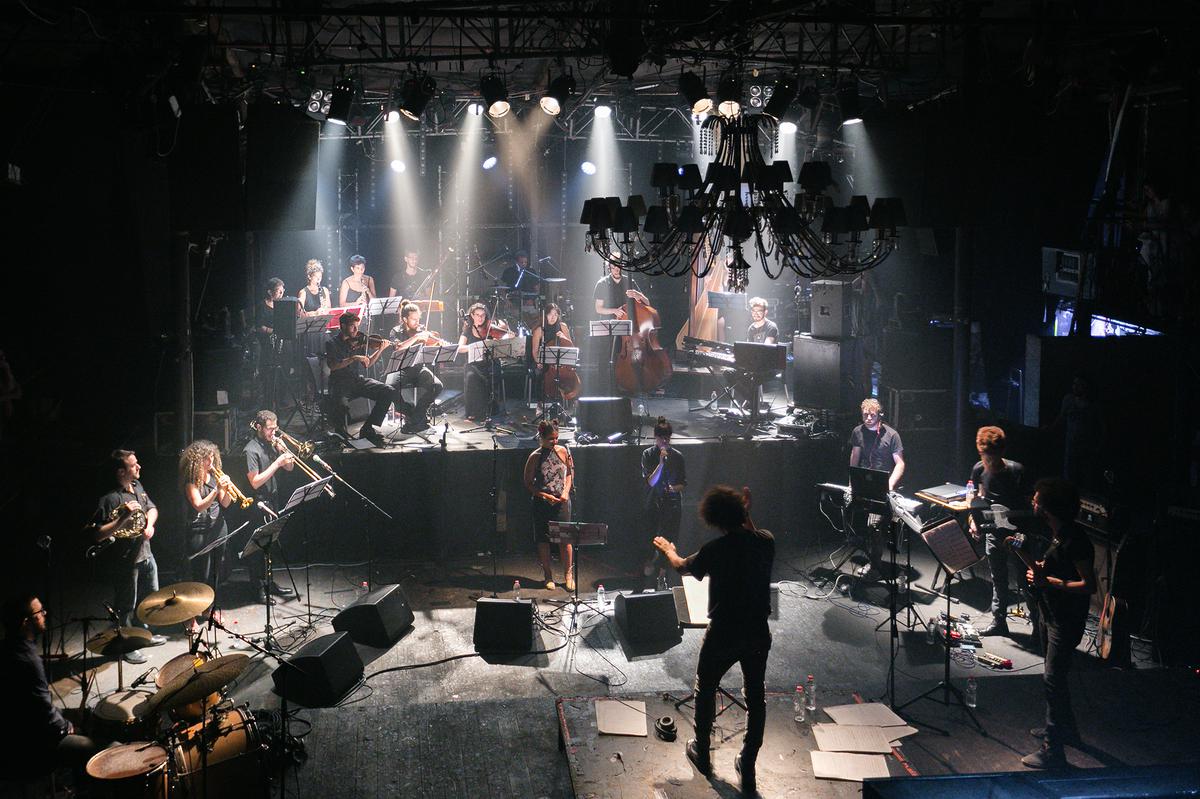
The orchestra performing in Isreal
One of the most challenging tasks for Matan is to maintain an orchestra “since it’s not a profitable organisation, especially when the orchestra performs music that isn’t mainstream”. It is the joy of creating music and collaborating with different artists that keeps the musicians in the orchestra glued together. “The struggle is worth it. We get deep satisfaction from the collaborative creation and from experiencing the shared energy that is being created in rehearsals and on stage with the audience,” shares Matan.
For now, the members of the orchestra are stitching a symphony, note by note, that transcends all generational and cultural divides. They are gung-ho over Trilok’s skills and don’t shy away from crediting him for influencing their compositions; as Matan puts it: “He influenced the way we compose, and we are truly inspired and humbled to share a space with him.”
They will perform on February 11 at 1AQ, Delhi.


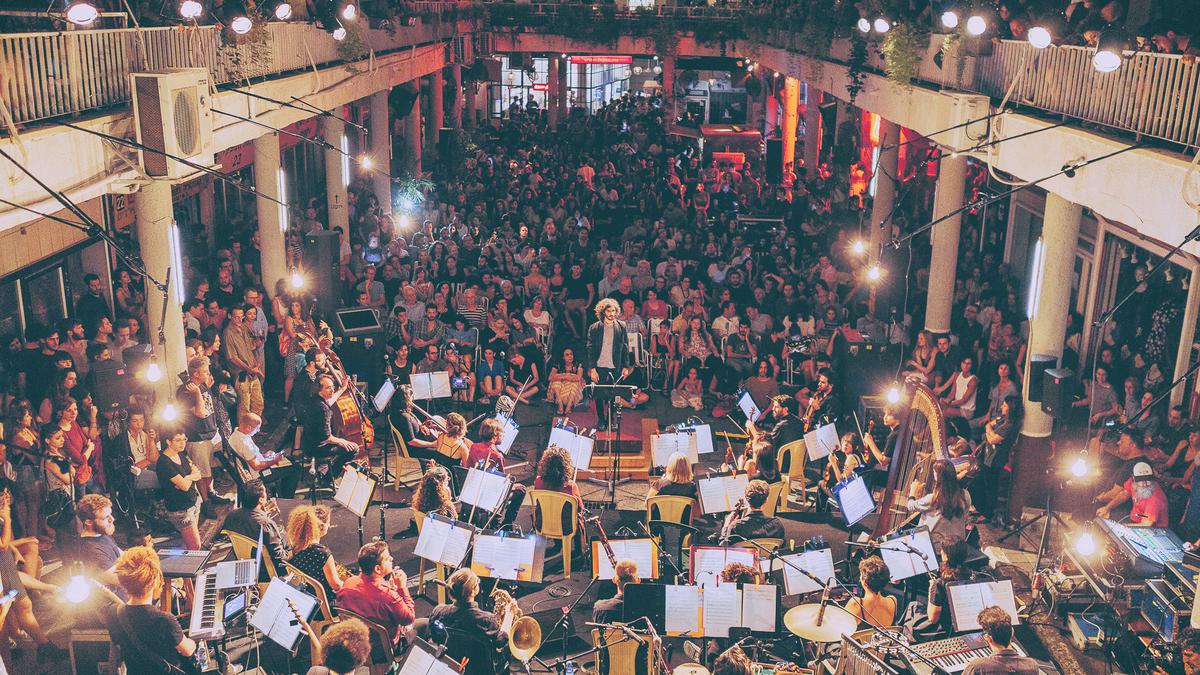
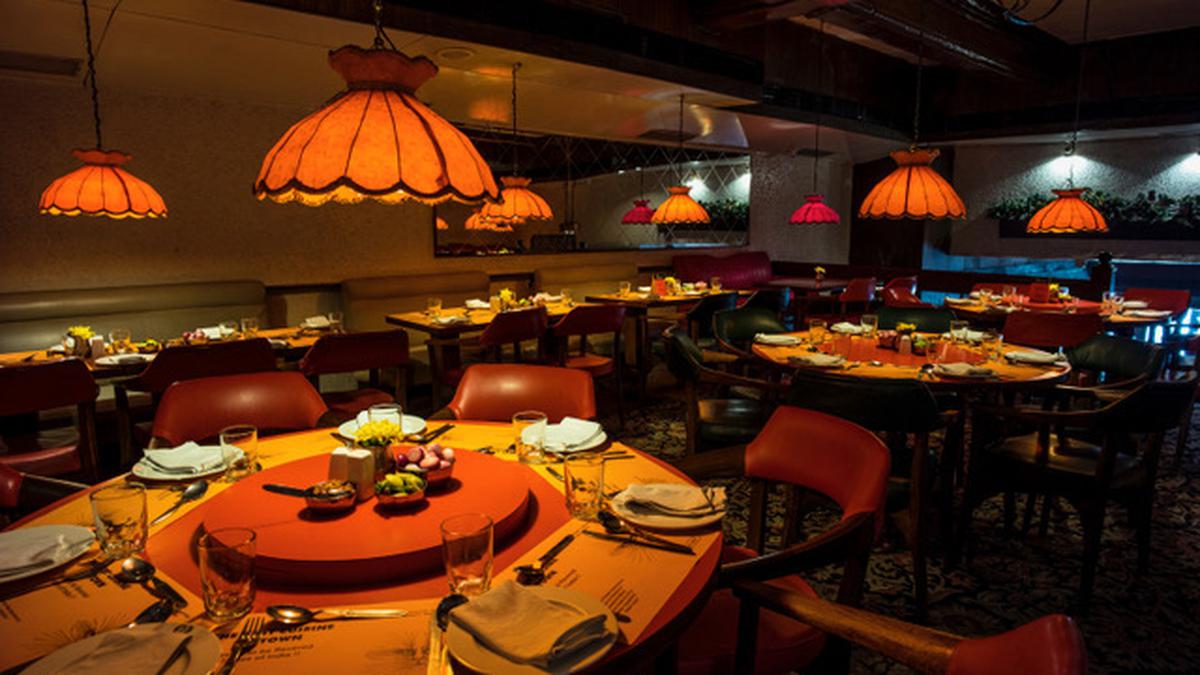
%20(2).jpeg)
